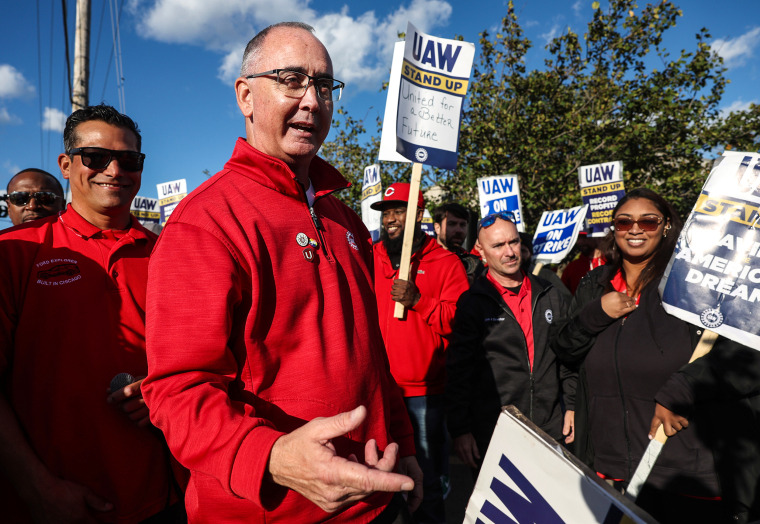The recent victory by the United Auto Workers (UAW) at the Volkswagen plant in Tennessee has triggered a wave of optimism among the union’s backers in the South. The successful unionization vote, which saw an overwhelming majority of workers at the Chattanooga plant voting in favor of UAW representation, is being hailed as a significant breakthrough for labor rights in the region. However, despite the jubilation among supporters, there are skeptics who remain unmoved by the development.
One of the key factors driving optimism among UAW backers is the historical significance of the victory. The South has long been considered a challenging battleground for labor unions, with anti-union sentiment deeply entrenched in the region’s industrial landscape. The successful UAW campaign at the Volkswagen plant not only represents a rare victory for labor in the South but also serves as a potential springboard for future organizing efforts in the region.
The vote at the Volkswagen plant is also seen as a symbolic win against the prevailing narrative that workers in the South are resistant to unionization. By demonstrating that a majority of workers at a high-profile auto plant are willing to join a union, the UAW has challenged the stereotypical image of the South as an anti-union stronghold. This shift in perception could have far-reaching implications for the labor movement in the region, inspiring other workers to consider unionization as a viable option for improving their working conditions.
Furthermore, the UAW victory in Tennessee has sparked hopes of revitalizing the labor movement in the South. The region has witnessed a steady decline in union membership over the past few decades, as manufacturing jobs shifted overseas and anti-union legislation weakened labor protections. The UAW’s success at the Volkswagen plant could potentially reignite interest in union representation among workers in other industries, leading to a resurgence of organized labor in the South.
Despite the optimistic outlook among UAW supporters, skeptics remain unconvinced of the lasting impact of the victory. Some critics argue that the unionization vote at the Volkswagen plant was an isolated incident, driven by unique circumstances that may not be easily replicated elsewhere. They point to the fact that Volkswagen did not actively oppose the unionization effort, and that the company’s neutral stance may have contributed to the favorable outcome for the UAW.
Moreover, skeptics raise concerns about the challenges that lie ahead for the UAW in negotiating a contract with Volkswagen management. The union will need to navigate complex issues such as wages, benefits, and working conditions, all of which could present significant hurdles in the bargaining process. Some skeptics worry that the high expectations set by the unionization victory may not be met in the final agreement between the UAW and Volkswagen.
In conclusion, the UAW’s recent triumph at the Volkswagen plant in Tennessee has sparked optimism among supporters and raised hopes for a resurgence of the labor movement in the South. The victory symbolizes a significant breakthrough for organized labor in a region where anti-union sentiment has long prevailed. However, skeptics caution that the challenges ahead, including negotiating a contract with Volkswagen and sustaining the momentum of the unionization effort, may temper the enthusiasm surrounding the win. Only time will tell whether the UAW’s victory in Tennessee will be a game-changer for labor rights in the South.
